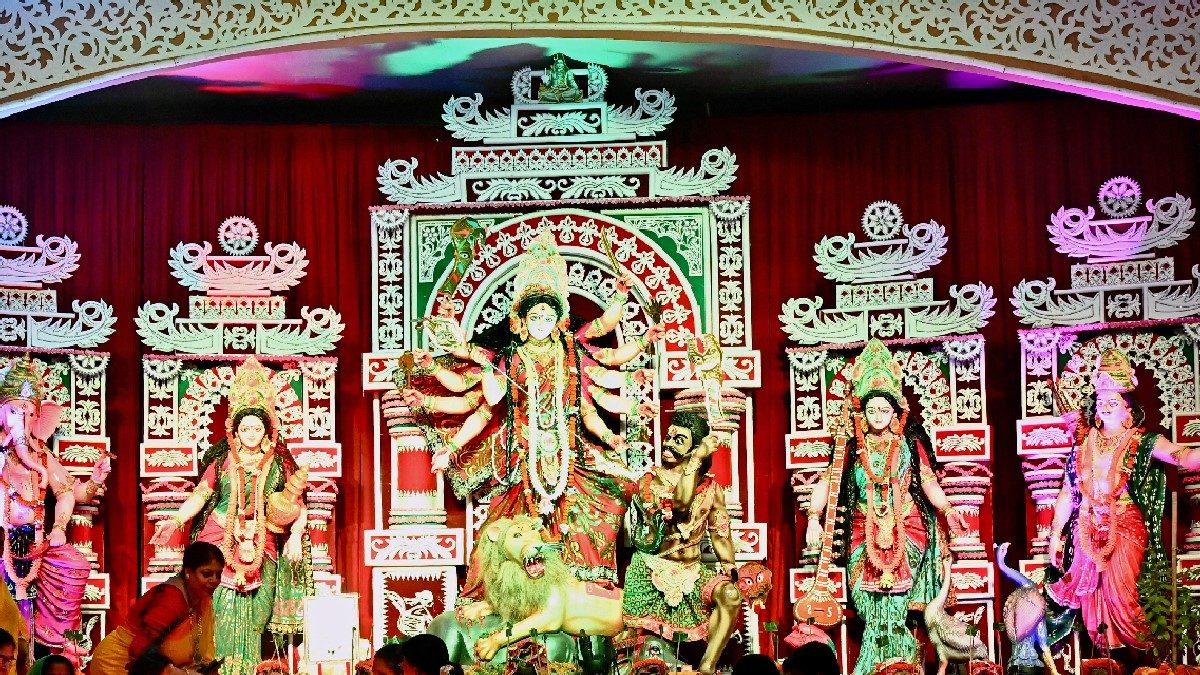Following the resignation of Prime Minister Sheikh Hasina and the subsequent unrest in Bangladesh, there were concerns about the safety of Hindu communities during Durga Puja. The interim government, determined to maintain peace and communal harmony, took several measures to ensure the safety of Hindu worshipers and their places of worship.
A Promise of Protection and Peace
The interim government, headed by a council of advisers, made a clear statement: anyone disrupting communal harmony or targeting places of worship during Durga Puja would face the full force of the law. Religious Affairs Adviser Dr AFM Khalid Hossain reiterated this message, emphasizing that no one would be allowed to harm Hindu temples or harass worshipers.
Local Involvement and Guardianship
The government sought to build trust and encourage a sense of community ownership by engaging local residents, including madrasa students, to safeguard the temples. This move was intended to demonstrate that security measures were not just reliant on the state apparatus but also involved active participation from the local community. Hossain assured the Hindu community that they would be able to celebrate their festival with enthusiasm and religious fervor, free from fear and intimidation.
Combating Fear and Securing Safety
Acknowledging the heightened fear among the Hindu population due to the recent wave of violence, Hossain urged them to remain calm. He assured them that no criminal attempts to disrupt their celebrations would succeed. This reassurance, coupled with the involvement of local communities and increased security measures, was intended to address the anxieties of the Hindu population and ensure their safe participation in Durga Puja.
The Need for Collective Resistance
The government’s actions were driven by the realization that potential troublemakers could attempt to exploit the current political instability to disrupt communal harmony. Hossain stressed the importance of collective resistance to these efforts, underscoring the responsibility of all citizens to maintain peace and order. The involvement of madrasa students, a symbol of religious learning and harmony, was seen as a powerful message promoting unity and solidarity across different communities.
Security Measures and Law Enforcement
Law enforcement and administrative officials received specific instructions to implement comprehensive security measures to protect puja mandaps, the temporary structures erected for Durga Puja celebrations. The government’s focus on safeguarding these structures was a practical response to the fear that they might become targets of violence.
Historical Context and Minority Rights
The anxieties of the Hindu community stem from a long history of persecution and discrimination in Bangladesh. Since the fall of the Hasina government, the Hindu population faced an escalation of attacks, threats, and vandalism, raising concerns about the fragility of minority rights.
A Declining Presence
The Hindu community, which constituted a significant portion of Bangladesh’s population during the Liberation War in 1971, has seen its share decline steadily over the years. Today, they represent about 8% of the total population, highlighting the vulnerability of minorities within a largely Muslim society.
Calls for Protection and Concerns for the Future
The Hindu community has voiced their concerns about their safety and the potential threat to their religious practices. Their protests and appeals for protection reflect a deep fear and apprehension about their future in Bangladesh.
Takeaways
The interim government’s actions during Durga Puja are a testament to the importance of maintaining peace and stability during times of political turmoil. The government’s efforts to reassure the Hindu community, engage local residents, and strengthen security measures were intended to address anxieties and demonstrate a commitment to protecting minority rights.
This situation highlights the importance of fostering inter-religious harmony and promoting tolerance within diverse societies. The protection of minority rights, not only in Bangladesh but across the world, is a vital aspect of ensuring inclusivity and safeguarding the principles of peaceful coexistence.




